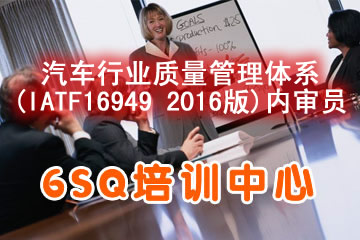The Lion of Lean: An Interview with James Womack (Part 1)
Francis J. Quinn, Editor
Supply Chain Management Review July 1, 2005
http://www.manufacturing.net/s ... F2005
For more than two decades, James P. Womack has been an articulate and relentless champion of lean, a management approach that seeks to create value and eliminate waste in all business processes. Womack’s interest in lean began in the late 1970s and early 1980s when he was a researcher at the Massachusetts Institute of Technology (MIT). One study in particular that he worked on—a landmark analysis of the competitiveness of the U.S. auto industry vis-à-vis Japan—opened his eyes to the competitive possibilities of lean production.
That experience ultimately led to the publication of The Machine that Changed the World, which he co-wrote with Daniel T. Jones and Daniel Roos. This business classic laid out the principles of lean production as they played out at Toyota. Womack’s next book was Lean Thinking, originally released in 1996 and recently published in its second edition. In this book, Womack and co-author Jones explain how lean can be applied in a broader business context.
For the past eight years, Womack has been a visible and prolific advocate of lean thinking as the president of the Lean Enterprise Institute (www.lean.org), which he founded in 1997. The institute offers a wide range of workshops, publications, and other resources designed to help organizations understand the principles of lean and put them to work. True to the philosophy that lean is not a destination but a life-long journey, Womack and Jones are working on a new book scheduled for release this fall called Lean Solutions. Clearly, the “lion of lean” has not lost his roar.
Supply Chain Management Review Editor Francis Quinn spoke with Womack at the Lean Enterprise Institute headquarters in Brookline, Mass.
Q:What got you interested in lean in the first place?
A: Back in the late 1970s, I was a researcher at MIT working on a variety of transportation projects. And at that time, the U.S. automakers were starting to have all kinds of competitive problems with the Japanese. So given the long relationship between MIT and General Motors (GM’s long-time chairman, Alfred Sloan, was an MIT graduate who endowed the Sloan School of Management at MIT), we decided to conduct a study to figure out what was wrong and what could be done about it.
We concluded very quickly that the Japanese automakers’ advantage wasn’t trick currency or some kind of secret weapon. There was something fundamentally different about the way the best of the Japanese companies, led by Toyota, ran the business. And when I say the business, I mean the product development system, I mean the production system, I mean the supplier management system. I mean the system in Japan for dealing with customers. By 1982, my long-time collaborator Dan Jones and I concluded that the best Japanese auto companies were different from us. And with Toyota in particular, we quickly discovered that it was process, process, process, all the time. The ability to define processes, the ability to analyze them, the ability to improve them—they were just brilliant process managers.
So all of that led to our book in 1990 called The Machine that Changed the World, which told the story of how Toyota in particular was using lean production. In 1992, I left MIT and began on a new book with Dan called Lean Thinking, which told how companies could apply the principles of lean to create value while eliminating waste in their organizations. Then in 1997, I started the Lean Enterprise Institute. We write books, we teach workshops, we run conferences. And from time to time, companies call and say “How could I be the Toyota of the oil extraction industry?” Or “How would Toyota run a retail operation or a hospital or a post office?” So we go out and do these conceptual exercises and charge people an absurd amount of money to answer these questions and have some fun. It’s great—you could call it consulting, but it’s really conceptual about what should be done rather than implementation. I wish I could do that every day.
So that’s the long-winded answer of how we got into this.
Supply Chain Management Review July 1, 2005
http://www.manufacturing.net/s ... F2005
For more than two decades, James P. Womack has been an articulate and relentless champion of lean, a management approach that seeks to create value and eliminate waste in all business processes. Womack’s interest in lean began in the late 1970s and early 1980s when he was a researcher at the Massachusetts Institute of Technology (MIT). One study in particular that he worked on—a landmark analysis of the competitiveness of the U.S. auto industry vis-à-vis Japan—opened his eyes to the competitive possibilities of lean production.
That experience ultimately led to the publication of The Machine that Changed the World, which he co-wrote with Daniel T. Jones and Daniel Roos. This business classic laid out the principles of lean production as they played out at Toyota. Womack’s next book was Lean Thinking, originally released in 1996 and recently published in its second edition. In this book, Womack and co-author Jones explain how lean can be applied in a broader business context.
For the past eight years, Womack has been a visible and prolific advocate of lean thinking as the president of the Lean Enterprise Institute (www.lean.org), which he founded in 1997. The institute offers a wide range of workshops, publications, and other resources designed to help organizations understand the principles of lean and put them to work. True to the philosophy that lean is not a destination but a life-long journey, Womack and Jones are working on a new book scheduled for release this fall called Lean Solutions. Clearly, the “lion of lean” has not lost his roar.
Supply Chain Management Review Editor Francis Quinn spoke with Womack at the Lean Enterprise Institute headquarters in Brookline, Mass.
Q:What got you interested in lean in the first place?
A: Back in the late 1970s, I was a researcher at MIT working on a variety of transportation projects. And at that time, the U.S. automakers were starting to have all kinds of competitive problems with the Japanese. So given the long relationship between MIT and General Motors (GM’s long-time chairman, Alfred Sloan, was an MIT graduate who endowed the Sloan School of Management at MIT), we decided to conduct a study to figure out what was wrong and what could be done about it.
We concluded very quickly that the Japanese automakers’ advantage wasn’t trick currency or some kind of secret weapon. There was something fundamentally different about the way the best of the Japanese companies, led by Toyota, ran the business. And when I say the business, I mean the product development system, I mean the production system, I mean the supplier management system. I mean the system in Japan for dealing with customers. By 1982, my long-time collaborator Dan Jones and I concluded that the best Japanese auto companies were different from us. And with Toyota in particular, we quickly discovered that it was process, process, process, all the time. The ability to define processes, the ability to analyze them, the ability to improve them—they were just brilliant process managers.
So all of that led to our book in 1990 called The Machine that Changed the World, which told the story of how Toyota in particular was using lean production. In 1992, I left MIT and began on a new book with Dan called Lean Thinking, which told how companies could apply the principles of lean to create value while eliminating waste in their organizations. Then in 1997, I started the Lean Enterprise Institute. We write books, we teach workshops, we run conferences. And from time to time, companies call and say “How could I be the Toyota of the oil extraction industry?” Or “How would Toyota run a retail operation or a hospital or a post office?” So we go out and do these conceptual exercises and charge people an absurd amount of money to answer these questions and have some fun. It’s great—you could call it consulting, but it’s really conceptual about what should be done rather than implementation. I wish I could do that every day.
So that’s the long-winded answer of how we got into this.
没有找到相关结果
已邀请:





5 个回复
victorliu (威望:0)
赞同来自: